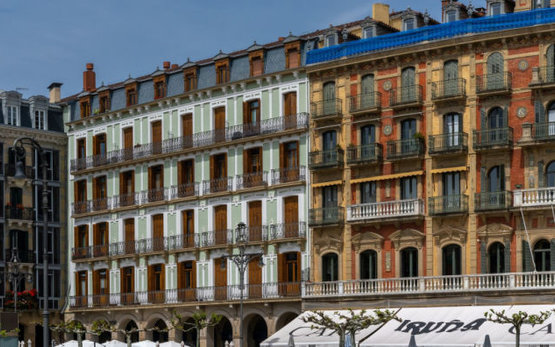Spotlight
-

ESPON-IRiE Interregional Relations in Europe Final Event
Workshops | November 11, 2022 | Event starts: November 24, 2022ESPON IRiE project cames to an end.

ESPON IRiE project cames to an end.

Benefits from societal innovation are not the privilege of regions with structural innovation capacity. This conclusion from the newest ESPON research commissioned by the incumbent

ESPON celebrated 20 years of innovative support for territorial policymaking in a both nostalgic and inspirational event that took place at the European Convention Center in Luxembourg at 28 Septem

La politica di coesione sociale, economica e territoriale è la principale politica di investimento dell'Unione europea.

COVID-19, like earlier pandemics had a devastating influence on the tourism sector, the effects of which are still being felt by the industry.
Are you interested in participative processes dealing with the development of inter-municipal, cross-border or transnational cooperation areas?
The workshop will be focused on the adaptation policies and measures dealing with the impact of climate change in the context of the Baltic Sea.
This online workshop will tackle the problem of uneven development in rural areas in Europe, as it poses a persistent problem for territorial authorities. Shortages of economic opportunity and labour in these regions often place structural constraints on the provision of public infrastructure and access to services for a spatially dispersed and aging population.
The stakeholders and public authorities within the Strategic Urban Region of the Eurodelta (SURE) have elaborated, with the support of the ESPON program, a strategic policy roadmap towards a more s
This online workshop will grasp the rising demand for second homes and increasing multi-locationality during the COVID-19 pandemic in Nordic countries and discuss the Finnish context in more depth.
The ESPON LAKES project organises a European roundtable on Integrated Territorial Development in large lake regions.
As part of its post-2010 biodiversity policy, the European Commission promoted a strategy for an EU-wide Green Infrastructure (GI) with the aim to provide a framework for integrating GI into sectoral policies, including nature conservation. The underlying idea of this initiative is the recognition of the environment as an infrastructural resource capable of delivering a wide range of ecosystem services.
Regions, cities, and rural areas across Europe and within countries are facing different challenges and opportunities concerning shrinkage. The diversity of processes that determine those challenges and opportunities, depends on the pathways of economic restructuring, on the resilience of local public services and on local initiatives.
Controlling the rate of urbanisation, its trajectories, and its consequences have a central role in achieving sustainability for the future of the planet. One of the main objectives to reach long-term sustainability is to densify within already-built urban structures without hampering the environmental value and quality of its surroundings, and ultimately halting the further urbanisation of green areas.
Managing urban growth plays a significant role in achieving sustainability and balancing the trilemma of the environmental, economic and social spheres.